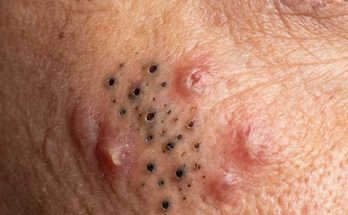When it comes to our health, a wealth of information – and misinformation – abounds.
Preventive health, the proactive approach to maintaining well-being and averting illness, is often shrouded in misconceptions that can deter us from making truly informed choices.
Understanding the truth behind these common myths is crucial for optimizing your health strategy and embracing effective disease prevention strategies.
Many people incorrectly assume certain facts or dismiss critical aspects of health management, hindering their journey toward lasting wellness. This article aims to debunk ten prevalent myths surrounding preventive health, providing clarity and empowering you to take control of your well-being. By separating fact from fiction, you can better harness the early detection benefits and proactive care necessary for a healthier, more vibrant life. Let’s shed light on these misconceptions and equip you with accurate knowledge. Myth 1: You Only Need a Doctor When You’re Sick Fact: This is perhaps the most dangerous myth. Regular check-ups, even when you feel perfectly fine, are cornerstones of preventive health. Annual physicals, screenings like blood pressure checks, cholesterol tests, and cancer screenings (mammograms, colonoscopies) can detect potential issues before they become serious problems. Many chronic diseases develop silently, and early intervention can dramatically improve outcomes. Your doctor also provides guidance on lifestyle, vaccinations, and age-appropriate screenings, which are critical for comprehensive annual health checkups. Waiting until symptoms appear often means a condition has progressed, making treatment more complex. Myth 2: Supplements Can Replace a Healthy Diet Fact: While dietary supplements can play a role in filling nutritional gaps for some individuals, they are not a substitute for a balanced, whole-food diet. Fruits, vegetables, and whole grains offer a complex array of vitamins, minerals, antioxidants, and fiber that work synergistically and cannot be replicated in a pill. Relying solely on supplements while neglecting proper nutrition is a flawed strategy. Focus first on consuming a diverse, nutrient-rich diet. Consult with a healthcare professional before starting any new supplement regimen, especially if you’re exploring natural health products, to ensure they are appropriate and safe for your specific needs. Myth 3: Only Genetics Determine Your Health Future Fact: While genetics certainly play a role in your predisposition to certain conditions, they are not your sole destiny. Lifestyle factors, including diet, exercise, stress management, and environmental exposures, profoundly influence how your genes are expressed. This field is known as epigenetics. You have significant power to mitigate genetic risks through healthy choices. Regular wellness screenings and adopting a healthy living strategy can often prevent or delay the onset of conditions you might be genetically prone to. Your choices today impact your health tomorrow, regardless of your family history. Myth 4: Exercise Can Fix Any Unhealthy Habit Fact: Regular exercise is incredibly beneficial for overall health, but it cannot entirely undo the damage caused by persistently unhealthy habits like a poor diet, excessive alcohol consumption, or chronic sleep deprivation. While being active certainly helps, it’s part of a larger puzzle. You can’t “out-exercise” a bad diet, for example. True health comes from a holistic approach, where exercise complements other positive lifestyle choices. It’s about combining effective exercise programs with smart nutrition and adequate rest to achieve comprehensive well-being, rather than relying on one component to compensate for others. Myth 5: Kids Don’t Need Preventive Care Fact: Preventive care is essential from birth throughout childhood and adolescence. Regular pediatric check-ups are crucial for monitoring growth and development, administering immunization schedules, and addressing any emerging health concerns. These visits also provide opportunities for parents to receive guidance on nutrition, safety, and healthy habits. Establishing good preventive health practices early in life sets the foundation for a healthy adulthood and teaches children the importance of proactive self-care. It’s an investment in their long-term health and well-being, just as it is for adults. Myth 6: Being Thin Means You’re Healthy Fact: While maintaining a healthy weight is generally beneficial, being thin does not automatically equate to being healthy. You can be at a healthy weight and still have unhealthy habits, such as poor diet, lack of exercise, or smoking. Conversely, someone carrying a bit more weight might be metabolically healthier than a thin person who is sedentary and eats processed foods (often referred to as “skinny fat”). Focus on overall health markers like blood pressure, cholesterol, blood sugar, fitness levels, and healthy habits, rather than solely on the number on the scale. True health encompasses holistic health tips beyond just body mass index. Myth 7: All Stress Is Bad Stress Fact: Stress often gets a bad rap, but not all stress is detrimental. Acute stress, known as “eustress,” can actually be motivating and enhance performance, helping us meet deadlines or respond to danger. It’s chronic, unmanaged stress that poses serious health risks, contributing to heart disease, weakened immunity, and mental health issues. The key is to develop healthy coping mechanisms and stress management techniques to navigate life’s challenges effectively. Learning to differentiate between productive stress and debilitating stress is a vital part of maintaining emotional and physical equilibrium, contributing to robust emotional resilience training. Myth 8: Sun Exposure Is Always Bad Fact: While excessive unprotected sun exposure can lead to skin cancer and premature aging, some sun exposure is vital for health. Our bodies produce Vitamin D when exposed to sunlight, a nutrient crucial for bone health, immune function, and mood regulation. The key is moderation and smart sun exposure. Aim for short periods (10-15 minutes, depending on skin type and location) of unprotected sun exposure on bare skin, ideally in the morning or late afternoon, and always protect yourself from sunburn. Balancing the benefits and risks is essential for optimal health, ensuring you get enough Vitamin D without increasing cancer risk. Myth 9: Only the Elderly Need Flu Shots Fact: While the elderly, young children, and individuals with chronic health conditions are at higher risk for severe flu complications, annual flu shots are recommended for almost everyone six months and older. The flu vaccine protects not only you but also those around you who may be more vulnerable. Getting vaccinated helps reduce the spread of the virus and lessens the severity of illness if you do get sick. Staying up-to-date with immunization schedules is a collective effort to protect public health and is a straightforward, highly effective disease prevention strategy for all age groups. Myth 10: Natural Remedies Always Outperform Modern Medicine Fact: The belief that “natural” always equals “better” or “safer” is a dangerous oversimplification. Many natural remedies have therapeutic benefits and have been used for centuries, but they are not universally superior to conventional medicine. In many cases, a combination of both approaches, often called integrative medicine, yields the best results. It’s crucial to use natural remedies with caution, informed by scientific evidence, and ideally under the guidance of a healthcare professional, especially if you are on other medications. Never abandon proven medical treatments in favor of unverified natural alternatives. Responsible use of holistic wellness solutions means making informed, evidence-based choices. Debunking these common myths empowers you to make more informed decisions about your health. Preventive health is not a passive endeavor; it’s an active commitment to understanding your body, making wise lifestyle choices, and utilizing available medical resources. By embracing scientific truths and rejecting pervasive misconceptions, you can build a robust foundation for lasting well-being. Proactive preventive care plans and a commitment to genuine health knowledge are your most powerful allies in navigating the path to a long, healthy, and fulfilling life.



